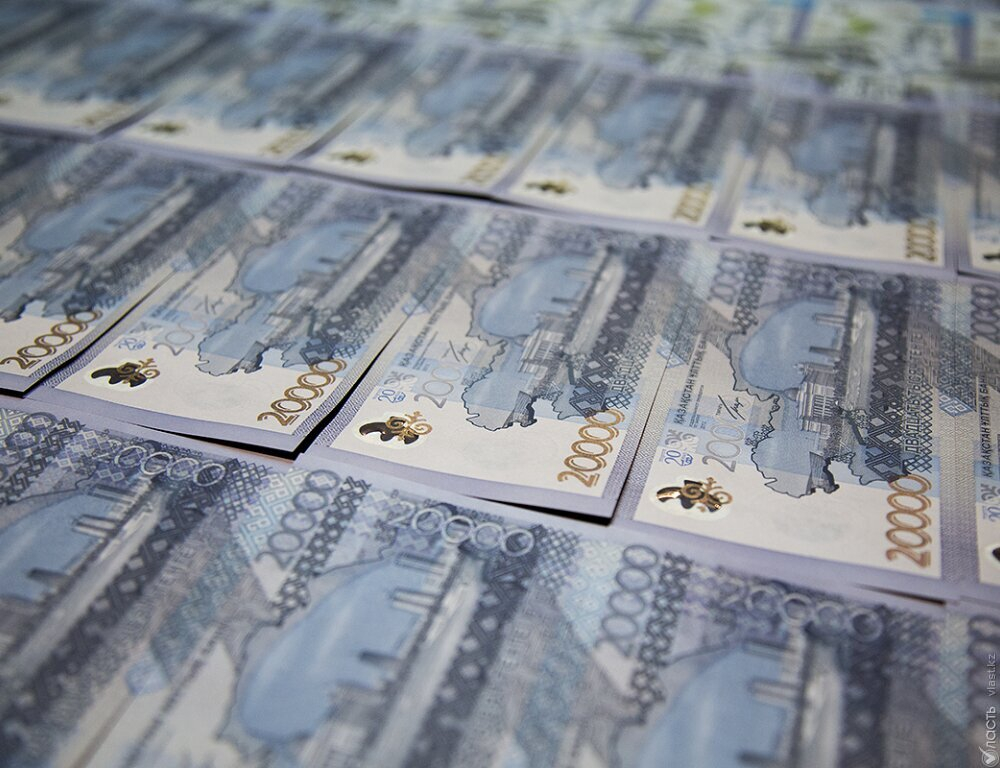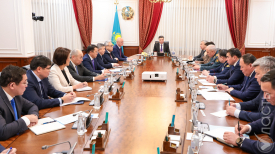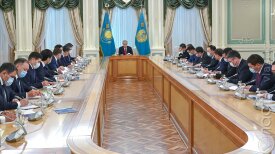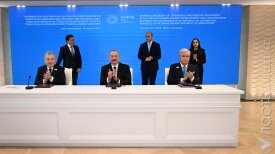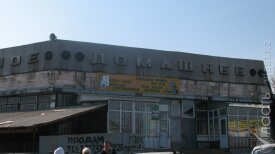Kazakhstan and a group of companies headed by the family of Moldovan businessman Anatol Stati reached an out-of-court settlement on July 16, the ministry of justice said in a press release. Stati had successfully filed a lawsuit in an arbitration court in Sweden and was awarded a compensation of more than $500 million in 2013. Kazakhstan rejected the settlement, claiming that the Stati side committed fraud, and refused to pay. The 14-year legal spat has now ended.
The National Fund’s assets remained practically unchanged in the first six months of the year, the ministry of finance reported on July 18. The government’s goal is to increase the value of National Fund assets from the current value of about $62 billion to $100 billion by 2029. Critics say that the strategy to achieve this goal remains opaque.
The Central Bank said on July 15 it will convert around $970 million-worth of National Fund assets in order to buy shares in the national uranium company Kazatomprom. This is not the first time that the Central Bank becomes a shareholder of a state-owned company. Kazatomprom is listed in AIX, the Astana International Exchange.
The government published a draft bill on July 18 that would halt the creation of quasi-public sector entities until the end of 2026. The proposal comes on the back of President Kassym-Jomart Tokayev’s proposal to liberalize the economy.
Samruk-Kazyna, the national holding, is not worried about the mounting debt at the railway operator Kazakhstan Temir Zholy, a spokesperson said on July 19. The company has an outstanding debt of around 2.9 trillion tenge (more than $6 billion), but future infrastructure projects could attract up to 4 trillion tenge in investment, Aidar Ryskulov, Samruk-Kazyna’s managing director for economics and finance said. In an interview with Vlast in May, Nurlan Zhakupov, Samruk Kazyna’s head, said that the aim is to turn KTZh into a profitable company by cutting subsidies.
The government is planning to have three new coal-fired power plants built and ready by 2028, minister of energy Almasadam Satkaliyev said on July 18. Russian contractors will build these plants in Kokshetau, Semei, and Oskemen, in what was described as a step back in Kazakhstan’s effort to curb carbon emissions. Samruk-Kazyna is also in talks with Russian partners to build a hydropower plant on the Irtysh River, which flows from China, through Kazakhstan, into Russia.
Public discussions around the construction of Kazakhstan’s first nuclear power plant are ongoing, Satkaliyev said on July 16. The government has reported on a number of public discussions across the country, but no independent public survey has tested the approval rating so far. Tokayev previously said that the decision should be made by referendum this coming fall.
On July 16, Satkaliyev said that Kazakhstan plans to increase gas transit from Russia to Uzbekistan and Kyrgyzstan, as well as the transit of Turkmen gas to China. Several gas pipelines pass through Kazakhstan, which earns millions of dollars in transit fees every year.
A land plot in the southern city of Shymkent allegedly formerly owned by Bakhyt Ibragim was returned to the state budget, the city prosecutor’s office said on July 17. Ibragim was a shareholder in Qazaq Banki. He was arrested in Germany in 2018 and extradited to Kazakhstan, where he was sentenced to seven years in prison for embezzlement. He committed suicide in March, soon after his release from prison.
Nurlan Tleubayev, the former owner of Delta Bank, was found guilty of embezzling 4 billion tenge ($8.4 million) through a state-funded program in 2015. He had been convicted in 2021 for another count of embezzlement along with Bank RBK, Qazaq Banki, and Eurasian Bank shareholders. The Central Bank revoked Delta’s banking license in 2017.
The historic members of the “Eurasian Trio” have now all left the board of Eurasian Resources Group, one of Kazakhstan’s largest industrial holdings. On July 17, Alexander Mashkevich and Patokh Chodiev, two of the original founders, left their posts, the company said in a statement. Mashkevich served as the chairman and is now replaced by Shukhrat Ibragimov, the son of the late Alijan Ibragimov, the other original founder. Chodiev was replaced by his son Sabir.
Поддержите журналистику, которой доверяют.
